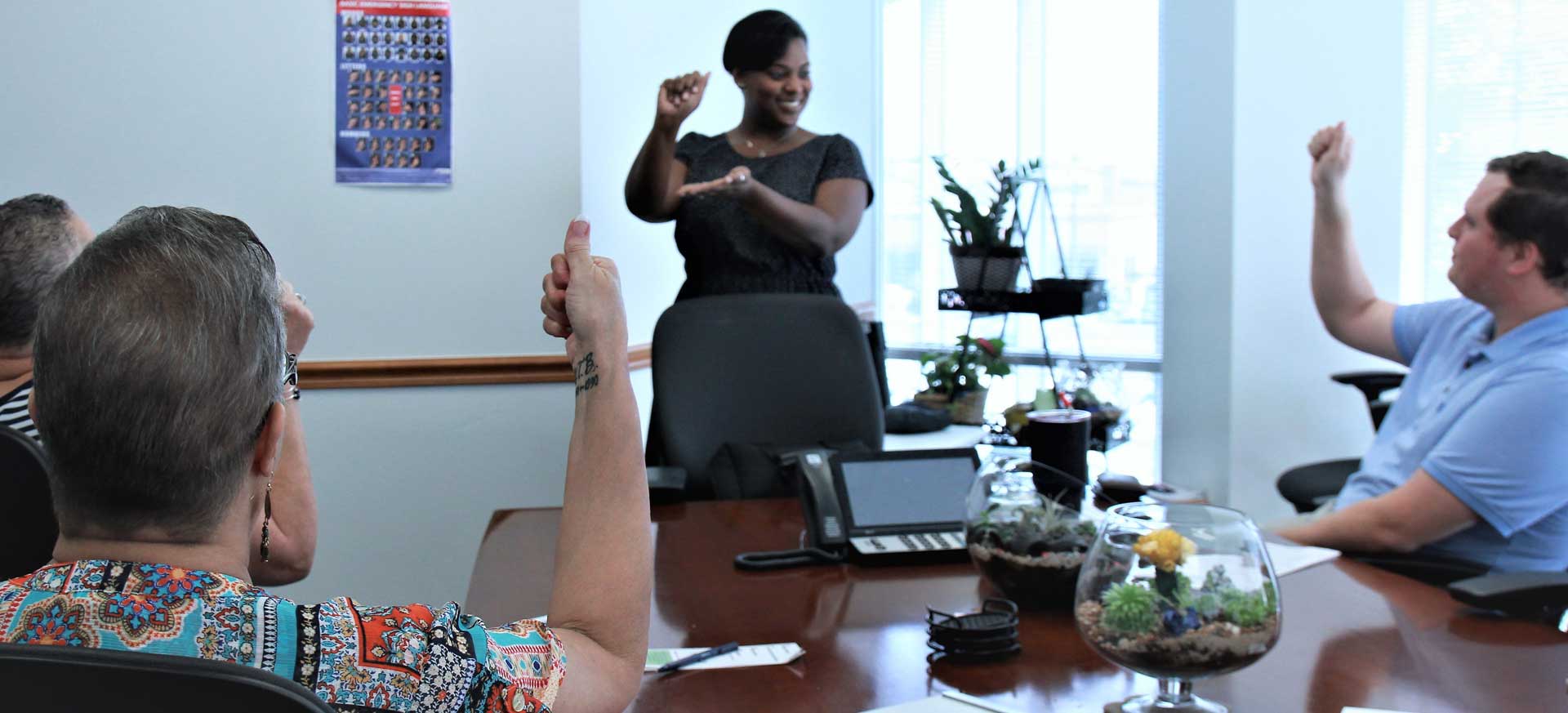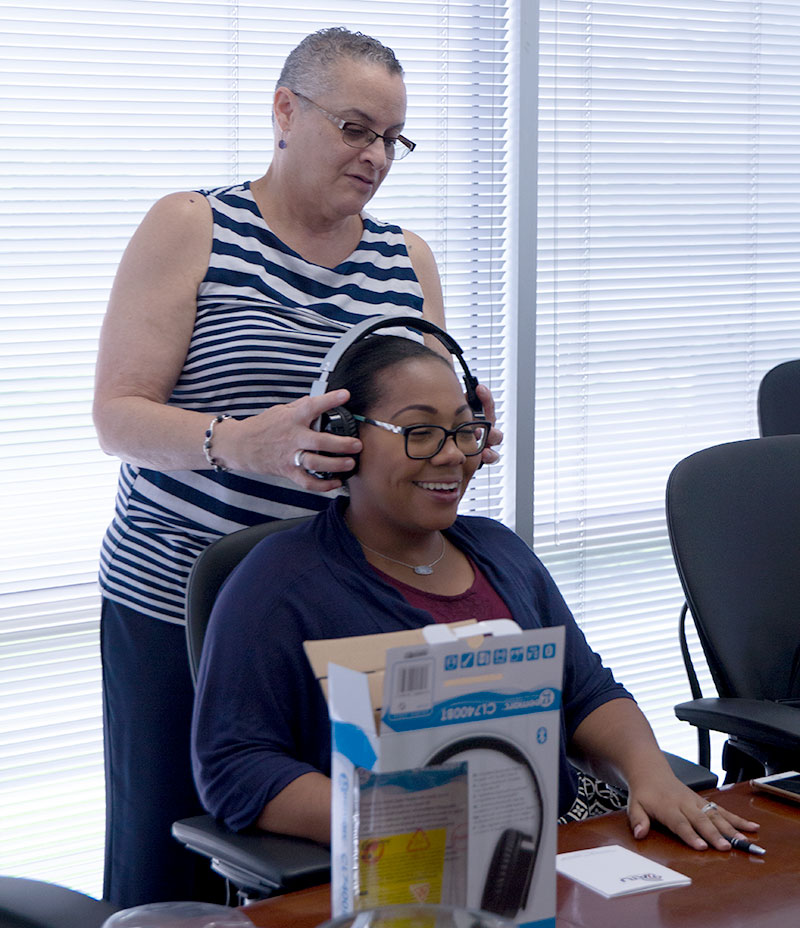What is (AT) Assistive Technology?
Assistive technology is equipment that is used to increase, maintain, or improve the functional capabilities of people with disabilities that might otherwise be difficult or impossible.
Examples: of assistive devices include wheelchairs, prostheses, hearings aids, visual aids, and specialized computer software and hardware.
Who is Assistive Technology Unlimited (ATU)?
Assistive technology Unlimited or ATU is a Houston based company that serves the State of Texas by providing information, technology, training, and resources about disabilities and accommodations. We are a team of like-minded, like-hearted individuals who are working together to promote disability awareness, the use of technology, adaptive devices, auxiliary aids, and services. Our team strives to lessen the impact of barriers imposed by disabilities and limiting conditions, including hearing loss.
ATU is a vital resource for People with Disabilities (PWD), their companions and family members. We help schools, government entities, healthcare facilities, and social service organizations who are required to provide accessible programs or services to their students, guests, clients, patients, and customers with disabilities. Our overall goal is to help them avoid having to say, “I didn’t know,” a mistake which is costing millions for unprepared employers, businesses, and community organizations goal is to help
ATU provides free hearing screening, quality low-cost cellular devices and services, resources, training, and customized workshops.
ATU is a STAP—Specialized Telecommunications Assistance Program provider. Thru STAP, ATU offers landline and cell phones, tablets, headsets, alerting devices, personal amplifiers, etc. at no cost to the consumer.
We invite our community), parents, veterans, seniors and service providers to explore our website and learn how various types of assistive technology/auxiliary aids can help individuals live to their fullest potential and become more independent. Our ATU team will continue to work and empower our community to better serve people with disabilities, including those with hearing loss

Our Mission
Our mission is to enhance the lives of people with disabilities by promoting awareness, support, training, and high-quality, low-cost technology, programs, and services that will enrich the lives of people with disabilities.
Our Goal: To Transform Lives, one device at a time.
“Let’s Make Hearing Loss a Conversation”
ATU team’s interaction within the community, enlightened and prompted us to begin addressing conditions that occur with age; especially hearing loss. In the senior population, hearing loss is very often unrecognized, ignored, stigmatized, and even ridiculed. For those who would benefit from using hearing aids or amplifiers, often feel too embarrassed to wear them, therefore, they don’t. They just suffer in silence. In too many cases, these behaviors lead to significant social and emotional consequences, Isolation and depression.
In communities where hypertension and diabetes are prevalent, so is hearing loss. Medications taken for these, and other conditions are considered oto-toxic drugs—they diminish hearing. Because hearing loss is gradual, many affected do not recognize it. Perhaps the TV is louder, they ask you to repeat more often, and may complain because people mumble when they speak. Research indicates that individuals with loss, if untreated, are five times more likely to be diagnosed with dementia. Hearing loss combined with linguistic and cultural variances are very likely to be misdiagnosed as mentally illness or impairments.
The 1990 enactment of the Americans with Disabilities Act has been instrumental in promoting much more awareness and acknowledgment of the needs of people with disabilities. However, we still have a long way to go. Although the impact of hearing loss can be significant, because it is invisible, too often it is not addressed. If we see a person in a wheelchair or walking with a cane, we become more conscious of their (dis)ability.
Our ATU Team needs your help. Join our grassroots campaign;” let’s make hearing loss a conversation.” By doing so, we start the process of de-stigmatization. We can begin to more openly recognized and address its impact.

